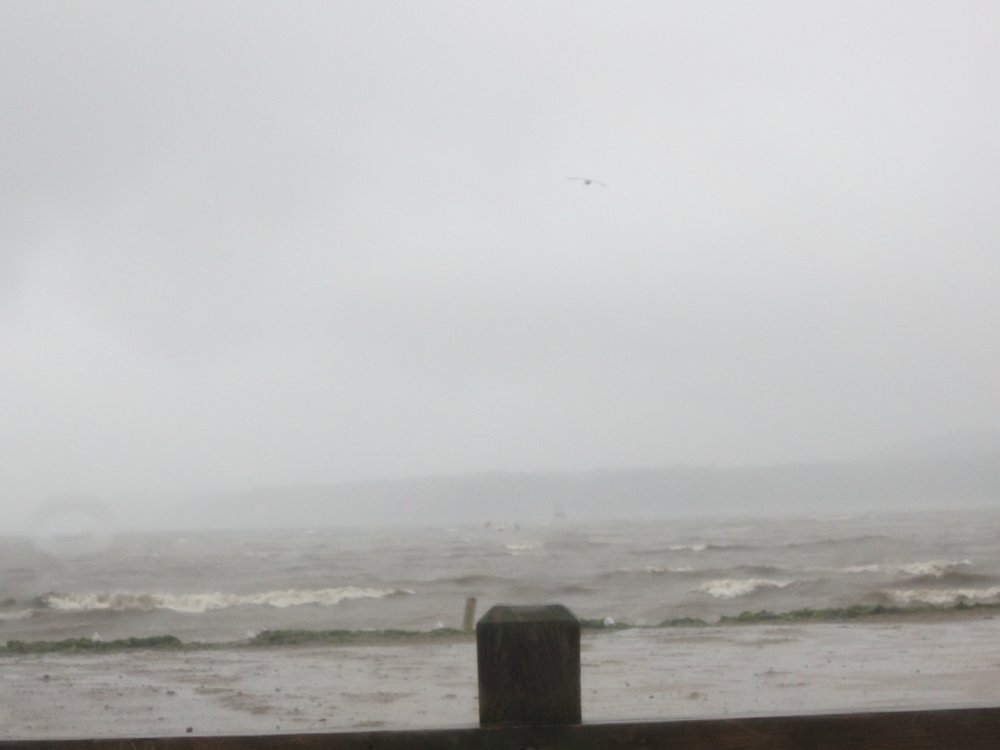
In a big storm, birds are pushed north, ahead of the winds. For a birder this is a chance to find rare birds, that is, southern birds not usually seen in these parts. So Peter and I are up at six, and soon driving through a grey, torrential downpour toward the Hudson River in Kingston. The roads are littered with debris from trees: twigs, leaves. A few downed trees block roads. Lights are out at intersections but there is little traffic at this early hour, so the road is ours.
As we navigate the streets of East Kingston we spy the white truck of our friend Mark DeDea. He has spied us as well, and backs up to join us. I love this, that the only other car on the road is a nutty birder, doing what we are doing: stomping around in plastic boots, soaked to the skin looking for birds.
As we walk down an abandoned train track to peer into the grey mist, a flock of birds circle in the distance and both Peter and Mark get excited. These are good birds. They are Hudsonian Godwits, birds with long upturned bills heading north, into the wind but away from the storm. How do they know to do this? And will they escape the fury of this storm? I feel my heart constrict as I think about this remarkable flight.

Wind! That is why I love a storm.
The day after the storm it is all blue sky, all smiles, as if nothing has happened. But there are still trees littering the roads and in the river the most amazing range of debris: a fuel tank, a bar-b-que, hundreds—thousands?—of bottles, an entire dock, all of the water chestnut that has ripped out and rafted south. There are many without power and further south there are people who have lost their lives to this storm. Everyone is pitching in after the storm, friends calling me to be sure all is ok, and me calling others to learn that all is ok, and everyone there to help out if help is needed. There is good will and gratefulness and, I dare say, even love. Love for this world, each other, this life, the birds, the wind.